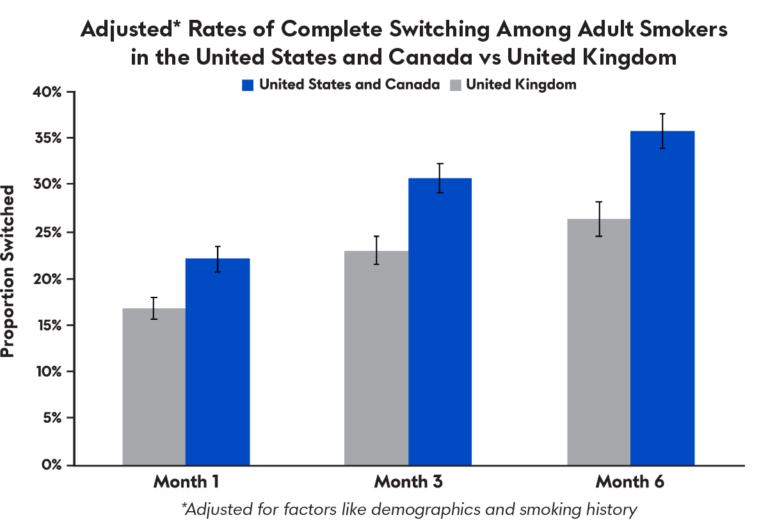
The nicotine delivery of Juul products available in the United States and Canada (59 mg/mL or 5 percent nicotine by weight) more closely resembles the nicotine delivery and experience of cigarette smoking than Juul products available in the European Union, which contain 18 mg/mL and/or 9 mg/mL of nicotine, according to a new study from Juul Labs published in Nicotine & Tobacco Research.
Researchers posited that heavier and more dependent smokers in particular may require the greater nicotine delivery of the higher nicotine concentration Juul pods (59 mg/mL) in order to successfully transition away from cigarettes.
The new study, which consisted of 24 adult smokers, assessed the nicotine delivery and subjective effects of combustible cigarettes compared to the Juul system with three nicotine concentrations: 59 mg/mL (U.S. and Canada), 18 mg/mL (U.K. and Canada) and 9 mg/mL (U.K.).
At each of five study visits, participants used one of four Juul products or smoked their usual brand of cigarette during controlled (10 puffs) and ad libitum use (5 minutes) sessions. Blood samples were collected, and levels of nicotine in the bloodstream were measured for each study product. Subjective effects, including relief of craving for cigarettes and withdrawal symptoms, were assessed 30 minutes after participants used each product.

The higher concentration (59 mg/mL) Juul product delivered significantly greater levels of nicotine and significantly reduced craving and withdrawal compared to the Juul with 18 mg/mL and 9 mg/mL nicotine concentrations. Researchers concluded that the lower nicotine delivery and craving relief from the 18 mg/mL and 9 mg/mL Juul pods available in the EU may limit the product’s ability to provide a satisfying alternative to cigarette smoking—particularly for more dependent adult smokers living in that region.
“When considering laws and regulations governing nicotine concentration in ENDS, policymakers should bear in mind that the availability of a variety of alternative nicotine products may facilitate even more smokers transitioning away from cigarettes,” said Mark Rubinstein, vice president of global scientific affairs at Juul Labs.











